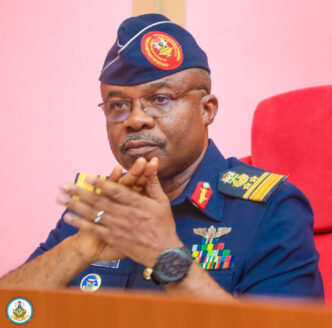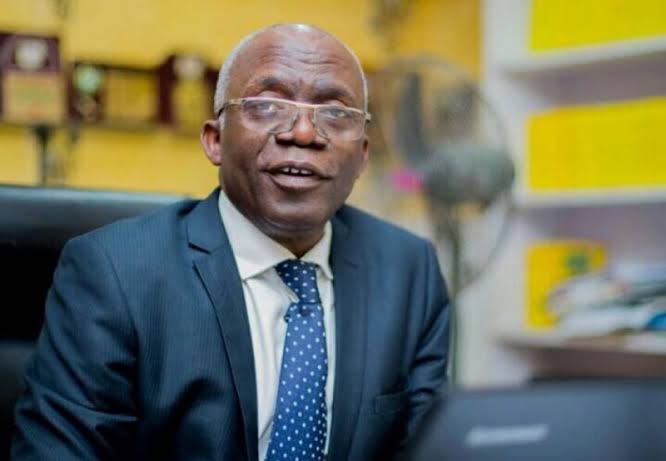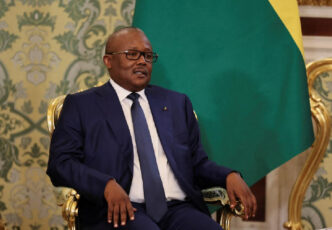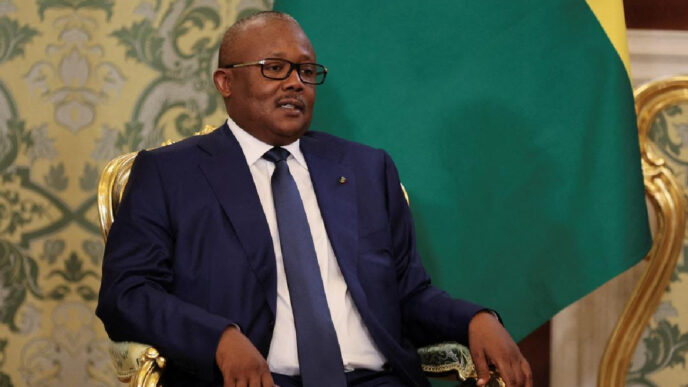By Gbenga Akingbule
The International Day of the Girl Child was on Thursday marked in Borno State with SOS Children’s Villages ( SOSCVN) and other stakeholders calling for the protection of the girl child in conflict areas.
Gatekeepers News reports that stakeholders are joining forces to pay special attention to the plight of the girl child, noting that the challenges facing children, especially girls, are complex and interlinked.
The Joining Forces and other stakeholders are unanimous on the need for girls to lead the change they seek in their various communities.

At the ASSU Hall of University of Maiduguri, venue of this year’s commemoration of International Day of the Girl Child, International bodies like UNICEF, UN WOMEN, International NGOs – SOS Children’s Villages, Save the Children International, Plan International, Terre des Hommes and Borno State Government officials as well as some selected school girls renewed commitment to protecting the right and welfare of the girl child.
The theme of this year’s commemoration- “The Girl I Am, The Change I Lead: Girls on the Frontlines of Crisis,” seeks to draw global attention to the girl child being the most vulnerable expecially during crises situations.
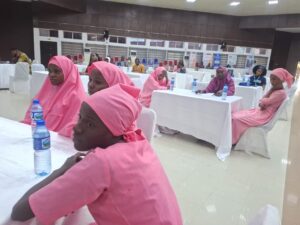
Eghosa Erhumwunse, National Director of SOS Children’s Villages and Chairperson of Joining Forces who spoke on behalf of the joint partners, disclosed that progress for the girl child “is progress for humanity.”
According him “As we reflect on this year’s theme, across Nigeria, millions of girls continue to stand resilient in the face of adversity, from conflict and displacement to floods and the mounting threats of climate change. Their courage is a testament to the power that lies within when opportunity meets support.
“In 2024, over 1.2 million Nigerians were displaced by flooding, with more than 150,000 children affected in Borno State alone. Behind these statistics are real lives, girls whose education was interrupted, whose safety was threatened, yet who continue to dream, rebuild, and lead change in their communities. We have witnessed young girls in Borno evolve from survivors to changemakers, becoming eco champions, peer mentors, and advocates for climate resilience and child protection.”
The Chairperson of Joining Forces aslo advocated for “the passage of the bill at the National Assembly seeking to amend Section 29(4)(b) of the 1999 Constitution, which currently deems a married woman to be of full age — a clause that conflicts with the Child’s Rights Act’s provision establishing 18 years as the legal age for marriage. Aligning these laws is essential to ending child marriage and safeguarding the rights and future of every girl in Nigeria.”
Mr Erhumwunse explained that ” Joining Force Nigeria is anchored on two key objectives: To leverage our collective power and global reach to drive renewed political and policy commitments on child rights, anchored on the UN Convention on the Rights of the Child, the African Charter on the Rights and Welfare of the Child, the 1999 Nigerian Constitution, and the 2003 Child Rights Act. (The laws as domesticated by states)
To institutionalize collaboration among our agencies to promote, protect, and fulfil the rights of children across Nigeria through joint advocacy, research, and coordinated action.”
In her goodwill message Hadiza Usman Programme Associate representing the Programme Specialist and head of office , Maiduguri of UN Women says 222 million girls live in crisis-affected countries where access to education, health care, and safety is severely disrupted. “In Nigeria, 1 in 5 out-of-school children is a girl, and an estimated 20 million children are out of school—most of them girls from the North-East and North-West regions.
“The impacts of conflict, climate change, and displacement disproportionately affect adolescent girls. During emergencies, girls are 2.5 times more likely to drop out of school than boys. Furthermore, according to UNICEF, 43% of Nigerian girls are married before the age of 18, and 20% become mothers before 17, often as a result of poverty, insecurity, or harmful social norms intensified by crises.
“At UN Women, we believe that every girl, regardless of her background or circumstance, deserves the right to learn, to lead, to be protected, and to thrive.
Our work in Nigeria and globally focuses on:
Expanding girls’ access to education and leadership, particularly in humanitarian and post-conflict settings.” Usman said.
Some of the girls , including those Living With Dsabilities present at that occasion were unanimous on the need for the Federal Government of Nigeria to step up and ensure the unconditional release of the remaining Chibok Schoolgirls in captivity.
“Enough is enough. It’s time for the Federal Government to do all it can to bring our sisters back home,” Islam Mohammed said.
Another girl , Zara Abubakar Hassan said “On this International Day of the Girl Child, I wish to appeal to the Federal Government to pursue the abductors of the remaining Chibok Schoolgirls, Leah Sharibu and other abducted girls, and ensure their immediate release.

